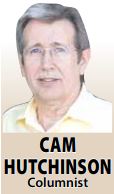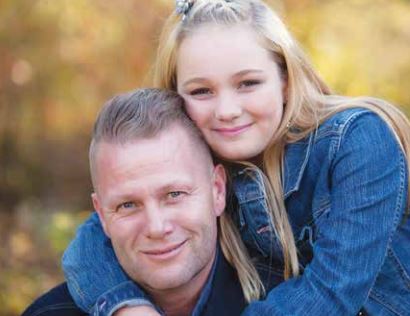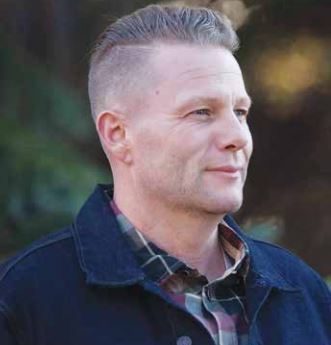
A dependency on drugs and alcohol ruined what should have been the best day of Brad Siroski’s life.
On Feb. 2, 2009, his daughter Keyerra was born. Not long after, he was doing cocaine in the hospital parking lot with his drug dealer.
“I remember I held my daughter in my arms that night and I looked at her and I sang to her for quite a while, and then I started to cry. I remember saying to her that I was going to be a good dad. I was going to be the father she deserved to have; I was going to be this great man to her.”
Then, he was in the parking lot.
“If my daughter couldn’t change my life around, then what could? I felt so weak, so hopeless, so much shame. That’s the word that comes over and over again.”
Siroski grew up on a farm near Davidson and now lives in Saskatoon. He shared the story of his addictions and healing in a book titled MENtal Health: It’s Time to Talk. His chapter is called “Become the Father I Knew I Could Be.”

He shared his story of addiction and healing in a
new book, MENtal Health: It’s Time to Talk.
(Photo Submitted)
Saskatoon author Allan Kehler said the response to the book, which shares the stories and recoveries of Prairie men, has been overwhelming, and is making a difference lives.
“This book truly will, and has, saved lives, and that’s because of relatability,” he said. “I feel I am this little catalyst in something bigger that has a bit of a platform where I can get their stories out.”
The stories included are from men of all walks of life, including those of Eric Olauson, MLA for Saskatoon University, and Chris Beaudry, a former assistant coach with the Humboldt Broncos.
Kehler said a common denominator among the men who shared their stories is the fear of judgment.
“They feared they would be perceived as weak, as lesser-than, as incompetent in their work.”
Kehler said every one of them has had the opposite experience.
“None of what they thought was going to happen happened. In fact, they found more arms reaching back towards them than they ever imagined. What that said to me is we live in our head too much. “What every single guy said is when they talked out their pain, they felt free.”
One of those is Siroski.
He had his first sip of alcohol when he was 13. He said he suffered from social anxiety as a child and didn’t fit in. Alcohol helped curb that anxiety. This anxious teenager became the life of the party. He could chat up girls with the best of them. His partying on weekends became legendary. But the party never ended.
By age 19, he had been kicked out of school, had two DUIs, had spent his first time in rehab and had been in jail. Siroski moved to Saskatoon and climbed the ladder at a nightclub until he reached manager status. Acid, ecstasy, cocaine and opiates supplemented his drinking.
He was, in his words, living a rock star lifestyle. The lifestyle led to a heart attack. He knew his body was on death row, but when he was given a clean bill of health, he went back to drugs and alcohol.
“I fell back into the cocaine use and the alcohol use really hard. But some how I managed to meet this girl and after seeing her for a while, she told me she was pregnant and that is kind of where things really started to go south for me,” he wrote in the book. He had relapse after relapse. At one time, he was drinking two bottles of vodka and using a gram of cocaine every day.
“I always resorted to old behaviours. My finances were depleted, and my friends and family members were long gone. I didn’t think I could go any lower.”
He did.
His day of reckoning came when he failed to show up at Keyerra’s mother’s home to look after his daughter. “Her mom said to me, ‘I’m afraid to leave our daughter with you. I can’t do this anymore.’” She said she was going to apply for sole custody of Keyerra.
“I was like someone ripped my soul out, punched me in the gut so hard that I couldn’t breathe anymore and that was it.” He was convinced he had lost his daughter for good. “I felt my only option was to drink myself to death.”
Then, he received a call from his mother. The timing was perfect. She told her son it was time to quit drinking if he wanted to be part of his daughter’s life. Her words resonated. With the support of a friend, he entered a program called Teen Challenge. That was on Aug. 21, 2012. “That was the last day I ever used drugs or alcohol.”
At the Teen Challenge Saskatchewan’s Men’s Centre — a one-year, in-residence alcohol and drug rehabilitation program — he learned to share his thoughts and feelings, and found a career path. “The most important thing you have is your voice,” he said. “And if you keep everything jammed down inside, it’s toxic. It can really cause you a lot of problems so, for me, I started out with sharing with a counsellor and then it went to sharing with some guys in the Teen Challenge program.

used drugs or alcohol. (Photo Submitted)
“Then I started sharing with people in churches. Then I started sharing at high schools and sharing to bigger groups. Every time I share is healing for me.”
After graduating from the Teen Challenge program, Siroski got a job, went to a gym, had a support group and made healthy choices. Then, a work injury tested his strength. He had a scan for two ruptured discs in his back. The scan also showed two spots on one of his kidneys. He had cancer.
He said after battling addictions for more than 20 years, he wasn’t going to let cancer get him. The surgery was a success and he is cancer free. “I made a promise that day, to myself and to God, that I would not waste the gift of life I was given.”
He is now an outreach addictions counsellor, working with people who are in the same place he once was. He is also a motivational speaker. He has rebuilt friendships and relationships, and now has shared custody of Keyerra. He said he owes his life to her. “I truly believe that my daughter is my angel; she’s my saving grace. She is truthfully what saved my life.”
(MENtal Health: It’s Time to Talk by Allan Kehler can be purchased at https:// www.outfromtheshadows.ca/, as well as at Saskatoon book stores, or on Amazon.)
-Cam Hutchinson
